|
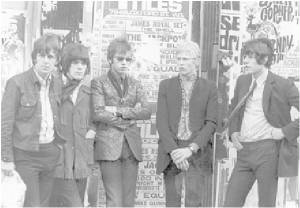
The Move history to be found on this page, deals primarily with the years that
Carl Wayne fronted them, in our opinion, it is and still remains the most interesting period of The Move's
sometimes very chaotic and volatile existence.
One of the most
successful pop groups to come out of Birmingham in the 1960s in terms of British chart success, they were also the hardest
to categorize musically as their style ranged from pop to psychedelic, progressive, heavy metal, 1950s style rock 'n' roll
and even country and western. Above all, it was Roy Wood's talent as a songwriter that propelled the band to an extended chart
run. Many of the songs that Roy Wood composed for The Move in the first few years were considered by some to be drug inspired
but in reality, a lot of his lyrics were written during boring lectures at the Moseley College of Art while he was there as
a student. Despite the groups' controversial reputation and almost constant inner turmoil, The Move also laid the foundations
of what was to become one of the biggest and most successful bands of the 1970's.
The Move was formed in early 1966 by Roy Wood from
Mike Sheridan & The Nightriders, Carl Wayne, Chris "Ace" Kefford and Bev Bevan from the Vikings and Trevor Burton from the Mayfair Set. The original plan formulated by Wood, Kefford and Burton, was to form a group
consisting of Birmingham's supposedly best musicians and create a look and sound similar to The Who. The Cedar Club on Constitution
Hill hosted late night jam sessions and it was there that the future Move members first got together on stage. Singer Carl
Wayne was invited to be frontman and Bev Bevan was chosen as drummer (see Carl Wayne & The Vikings).
After a debut gig at the
Belfry Hotel in Stourbridge and further gigs in the Birmingham area, Moody Blues manager Tony Secunda saw them and offered his services. Tony Secunda was one
of the more controversial pop managers of the 1960s and he employed methods that probably inspired Sex Pistols' manager Malcolm
McLaren years later.
Secunda secured
The Move a season at London's famous Marquee Club where they became known for their wild stage act which included flash bombs,
smoke, and Carl Wayne using an axe to hack apart effigies of political figures and smashing up old TV sets. The ensuing publicity
helped to gain The Move a recording contract with Deram, a subsidiary of Decca Records and publicity seeking Secunda made
sure
that newspaper
reporters were present when the band signed the contract on the back of a topless model.that newspaper reporters were present when the band signed the contract on the back of a topless model.
Tony Secunda also
pushed Roy Wood into writing songs for the group and although his only previously published composition was a single B-side
by the Nightriders, Roy came up with the inventive Night Of Fear for the Move's first single.
The song borrowed the riff from the classical 1812 Overture and was released late in 1966 to reach No. 2 in the UK
charts by early 1967. This was soon followed by two more Roy Wood originals; the driving I Can Hear The Grass Grow
(chart position No. 5), and the ultimate paisley pop anthem Flowers In The Rain (chart position No. 2) which also had
the honour of being the first song played on the BBC's new Radio One pop station.
The Move's success
ensured them regular radio and TV appearances. However, an ill advised publicity stunt meant to capitalize on a current news
tabloid scandal, resulted in promotional postcards being manufactured that had a cartoon of prime minister Harold Wilson shown
in a compromising position with his secretary. The PM was not amused and he took the group and their manager to court, suing
for libel and winning the case. This resulted in the songwriting royalties for Flowers In The Rain being confiscated
and donated to charities of Wilson's choice.
The Harold Wilson
episode strained and ultimately ended the relationship that the Move had with Tony Secunda and the group secured Don Arden
as their new management. Don Arden already had a reputation as one of the toughest managers in the music business and one
whose methods were regarded as quite controversial, although he had pushed a number of groups to success such as The Nashville
Teens, The Small Faces and Amen Corner.
In November 1967, The
Move undertook a U.K. package tour, which also included The Jimi Hendrix Experience, The Pink Floyd and Amen Corner (the Move
contributed backing vocals to the Jimi Hendrix Experience album Axis Bold As Love on the track You Got Me Floatin').
The group also released their first album and it reached No. 15 in the charts. Despite the success of their latest single
Fire Brigade (chart position No. 3), all was not well in the band. Ace Kefford left The Move in early 1968 reportedly
owing to nervous exhaustion and mental breakdown. He later formed his own group
(see The Ace Kefford Stand). Trevor Burton took his place on bass guitar and The Move now reduced to four
members, continued recording and touring. Note: the Brum group
A new Move
single Wild Tiger Woman, which had controversial lyrics, was released in July 1968 but did not chart thus becoming
the Move's first failure. However, their next single, the majestic Blackberry Way, released at the end of 1968, was
a No. 1 hit and became one of the classic songs of the era. In spite of this, Trevor Burton quit the band after an argument
on stage with Bev Bevan during a show in Sweden. Burton was quoted as saying he "hated" Blackberry Way and was fed
up with playing disposable pop songs. Burton joined Birmingham group The Uglys and was later in Balls with Denny Laine and Steve Gibbons (see Balls). His place was taken by Rick Price from the Birmingham band Sight & Sound.
The
next single, Curly, was not as strong as Blackberry Way but still made it to No.12 in the charts and in late
1969, The Move embarked on their first tour of the USA. The tour was not a big success, mainly due to lack of planning and
promotion, for although The Move had a more serious 'underground' following in America, record sales there were small with
the only airplay on alternative FM stations.
On their return
to the UK, they went, like many Midlands bands before them, on the 'cabaret' circuit that caused friction between singer Carl
Wayne and the rest of the band. By this time The Move was again under new management from pop manager Peter Walsh who specialised
in cabaret acts and had bought the group's contract from Don Arden. There were also disagreements within the group over who
should sing lead vocal on the Move's singles and after the inevitable arguments, Carl Wayne left for a solo career.
|
 |
|
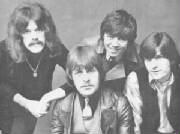
Midlands Beat Groups
of the 60's
the official site of one
of the most amazing bands to
come out of Brum
1943-2004
the amazingly talented lead singer
with The Move, and The Hollies
Carl you are missed.
|
 |
 |
 |
|
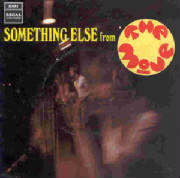
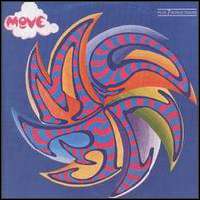
|
| SLRZ 1002 |
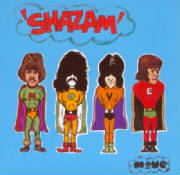
|
| SLRZ 1012 |
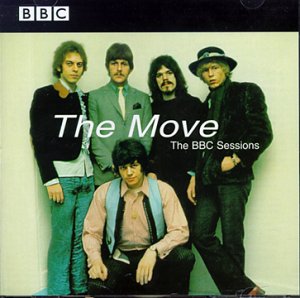
|
| BOJCD 011 |
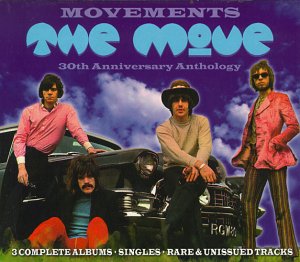
|
| WESX 302 |
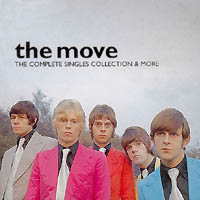
|
| CRIMCD 233 |
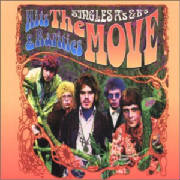
|
| REP 4665-WR |
|
|
 |
 |
 |
|
|
|

